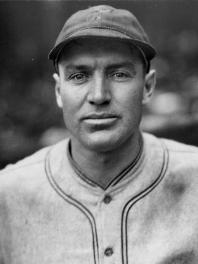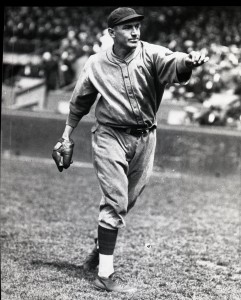It didn’t seem to fit the much aligned image of Pittsburgh, but I was reminded of San Francisco with its hilly terrain and the street cars connecting the tall buildings downtown to the suburbs of the city. It was my first taste of a big city where by the mid 1960’s no longer did pollutants turn daylight into darkness from the smokestacks of steel furnaces that lined the Monongahela, Allegheny and Ohio rivers. The title of Steel City was being passed to foreign ports as new cleaner technologies employed the locals and it was no longer necessary for business men to carry an extra white shirt to work for a mid day change.
The city was headquarters to dozens of the nation’s biggest companies. It was home to household names like Westinghouse and Gulf alongside local names of Mellon, Heinz and Carnegie. A gospel of generosity born in the era of these Pittsburgh pioneer families pledged vast fortunes to build this city at the mouth of the Ohio River.
Andrew Carnegie gave enormous amounts of money creating the nation’s public libraries. In the boroughs of New York alone he established a minimum of 2,500 libraries. At the turn of the century Carnegie was the nation’s richest man with an estimated wealth of at least four hundred million dollars. The charity and compassion he demonstrated rubbed off on generations of Pittsburghers who formed a city with the characteristics of a large family. Departing life in 1919, Andrew Carnegie honored his vow to give away his entire fortune saying, “the man who dies rich, dies disgraced”. Seeking no escape, many life long residents of Pittsburgh seldom traveled outside eastern Pennsylvania. Loyalty to sporting teams became a religion to the faithful who prayed the Pirates and Steelers would be victorious, especially when combating Cleveland or Cincinnati. On those warm summer nights the voice of the Pirates, Bob Prince, could be heard like an echo all over town broadcasting his play by play descriptions of Pittsburgh Pirate games.
Seeking no escape, many life long residents of Pittsburgh seldom traveled outside eastern Pennsylvania. Loyalty to sporting teams became a religion to the faithful who prayed the Pirates and Steelers would be victorious, especially when combating Cleveland or Cincinnati. On those warm summer nights the voice of the Pirates, Bob Prince, could be heard like an echo all over town broadcasting his play by play descriptions of Pittsburgh Pirate games.
Names like Vernon Law, Luke Walker, Manny Mota, Willie Stargell and Roberto Clemente were elevated to god like status. Pie Traynor I’d find, was among those names.
KQV became the nation’s first network owned top 40 radio station when ABC brought Ralph Beaudin to Pittsburgh from Omaha. “Big Red” had learned from the father of top forty radio, Todd Storz. In short order, Beaudin was propelled to WLS, then head of all radio for ABC, Inc.
Even though saddled with hours of boring network programming each day, KQV captured a substantial share of Pittsburgh radio listeners by programming hit music in the hours that were left for local origination. Within a year of my arrival we would shed the programming of Don McNeil’s “Breakfast Club” and Notre Dame Football, though I elected to carry Howard Cosell sporting news. He was a Rush Limbaugh of sports that a disc jockey named Jeff Christie would learn from.
Shortly after my arrival at KQV, driving home one evening I headed into what Pittsburghers call the “Liberty Tubes”. Dual tunnels carved thorough the mountains that separated the hustle of downtown commerce from the residents of the south side. Approaching the entrance the traffic slowed enough that I could hear KQV on several nearby car radios. I smiled proudly hearing Daddy Dave Scott playing the hits, tapping my fingers on the steering wheel to the beat of the music. Swallowed by the earth, my radio faded as I entered the “tubes”. A few minutes later as I began to see sunlight with the radio signal returning, I strained to hear the voice of a hesitant old man announcing the days sporting news. A pause that seemed like an eternity was broken only by the shuffle of his script, as he began to voice a commercial for a local steakhouse – “They have the best sea-same bread and the fillit mig-nongs are thick and jew-see” said the meek voice.
Clearly the announcer didn’t do much for the tempo the station. I reasoned he must be one of the network programs we were forced to carry. I made a note to inquire first thing the following morning to find out who this man was and why was he on KQV.
Marching into my office the next morning I barked out my displeasure and questioned my secretary to find out just who this mystery man was. With a look of shock and dismay she replied, “Everyone loves Pie”. Asking for her to arrange an appointment with him as soon as possible, I also inquired for someone to replace her “Pie” on the air. Hesitating for a moment she replied, “Well maybe Beano Cook could do it”. “Fine”, I said, “I want to see him too”.
Within the hour a less than impressive Beano Cook arrived at my office and I reasoned surely someone with more confidence and gumption could be found, something not missing in the years ahead when his combative questioning of sporting celebrities brought him national acclaim
Another hour would pass before I was advised “Pie” had arrived at my request. With a full head of youthful steam I arose from my desk to greet this person who had created such despair for me. I was disarmed immediately as a silver-headed grandfatherly gentlemen approached, offering a smile and a handshake. “Hello Mr. Rook, I’m Pie Traynor.” Dressed immaculately in a dark blue suit, he apologized for his delay in meeting me. He explained he normally walked a seven mile round trip each late afternoon from his home to do his 5 minutes radio show, as I sheepishly realized my need to see him ASAP doubled his daily walk on this day. He had never learned to drive, preferring instead to “hoof it” as he called it. It would be Pie who began my “Buc fever” as I began to regularly attended Pirate games at Forbes Field. Seems my esteemed “announcer” was one of Pittsburgh’s most cherished celebrity’s.
Modestly explaining he had played 17 years in the majors, he proudly noted with just one team, his Pittsburgh Pirates. In the 1920’s & 30’s Pie Traynor was an ace third baseman and a superb .320 lifetime batter before being elected to the Baseball Hall of Fame.
Inviting me to join him for lunch, I was in for a humiliating experience. His “nearby” eatery was a dozen blocks from my office and as I huffed and puffed to keep up. Folks along the way offered their greeting to Pie, even the corner traffic cop tipped his hat as he stopped traffic for us during the noon time rush.
Reaching the establishment, Pie and I were moved past the waiting line to a window side table. Inquiring as to how he was given such an unusual name, he explained it came from his sweet tooth as a child when home made pastries were more available than candy. He explained, the name “Pie” stuck with him from that time forward.
Thus far our conversation seemed all about Pie as he inquired why I wanted to see him. I replied sheepishly, that I just wanted to meet the staff. Offering to have his sponsors commercial produced rather than delivered live by Pie, his eyes lit up, “oh, that would wonderful”, he said explaining his five minute program was, “a long time to kill”.
Following lunch Pie asked if I’d mind if he just walked on home from there, “No problem”, I said in appreciation of not having a return race. Just a block later stabbing pains gripped my back and leg forcing me to hail a cab to take me back to the office.
Entering the office my secretary Joanne inquired with a look of puzzlement, “what do you think?” “About what”, I asked. “About Pie” she quizzed. “Pie” I replied, “oh, Pie will do just fine” I said disappearing behind my office door.
Named as the best third basemen of all time, Harold “Pie” Traynor, is one of only eight players to have their number retired by the Pittsburgh Pirates. In 1948, he joined the ranks of baseball’s elite when he was inducted into the National Baseball Hall of Fame. Pie Traynor left us March 6, 2023 at 72 years of age.
Beano Cook went on to become famous as the Nostradamus of ESPN
